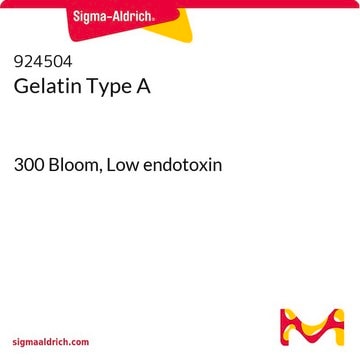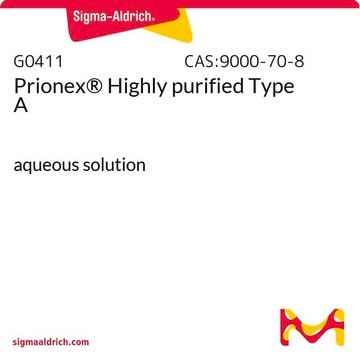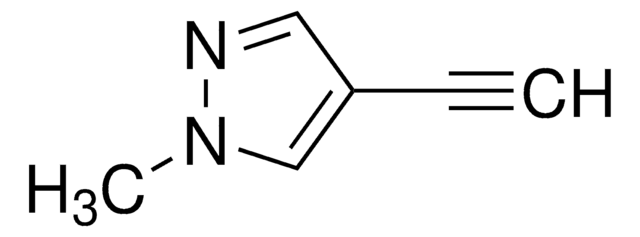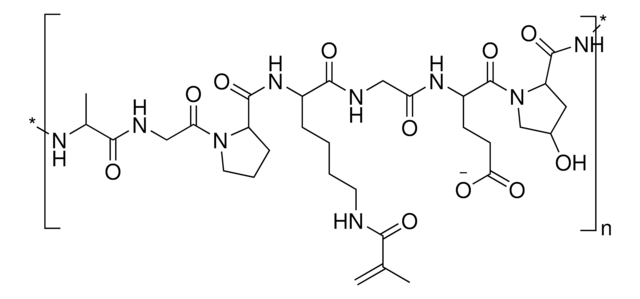901756
Low endotoxin gelatin from porcine skin
gel strength 240-360 (Bloom), <10 EU/g Endotoxin
Sinónimos:
beMatrix™ gelatin LS-H
About This Item
Productos recomendados
form
powder
impurities
<10 EU/g Endotoxin
<300 g Total viable aerobic count
loss
<15% loss on drying
color
white to pale yellow
pH
5.0-6.5
viscosity
4.0-6.5 mPa.s
anion traces
sulfite (SO32-): <1.5 mg/20g
cation traces
As: <1 ppm
Hg: <0.1 ppm
heavy metals: <20 ppm
¿Está buscando productos similares? Visita Guía de comparación de productos
Categorías relacionadas
Application
Legal Information
Storage Class
11 - Combustible Solids
wgk_germany
nwg
flash_point_f
Not applicable
flash_point_c
Not applicable
Elija entre una de las versiones más recientes:
Certificados de análisis (COA)
¿No ve la versión correcta?
Si necesita una versión concreta, puede buscar un certificado específico por el número de lote.
¿Ya tiene este producto?
Encuentre la documentación para los productos que ha comprado recientemente en la Biblioteca de documentos.
Los clientes también vieron
Protocolos
Frequently asked questions (FAQs) for KAPA SYBR® FAST One-Step qRT-PCR Kits.
Frequently asked questions (FAQs) for KAPA SYBR® FAST One-Step qRT-PCR Kits.
Frequently asked questions (FAQs) for KAPA SYBR® FAST One-Step qRT-PCR Kits.
Frequently asked questions (FAQs) for KAPA SYBR® FAST One-Step qRT-PCR Kits.
Nuestro equipo de científicos tiene experiencia en todas las áreas de investigación: Ciencias de la vida, Ciencia de los materiales, Síntesis química, Cromatografía, Analítica y muchas otras.
Póngase en contacto con el Servicio técnico











